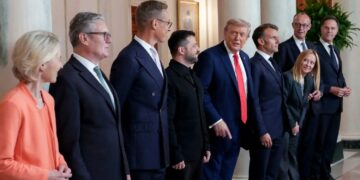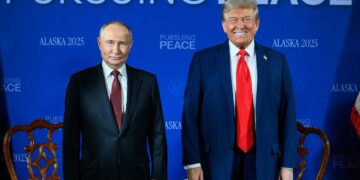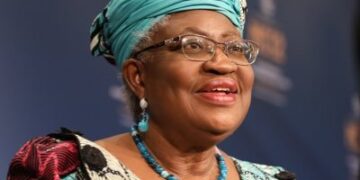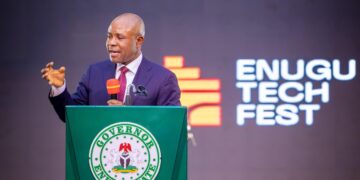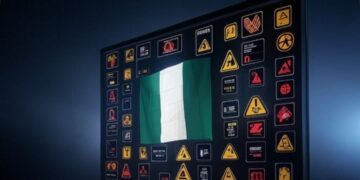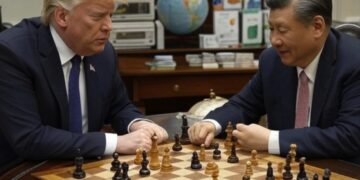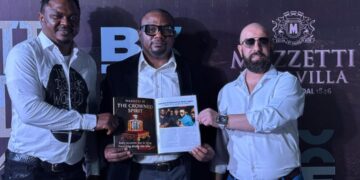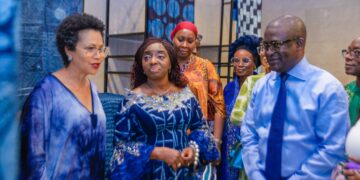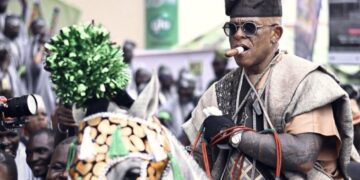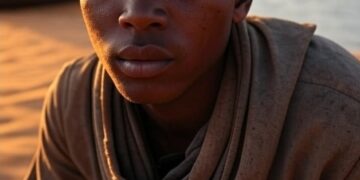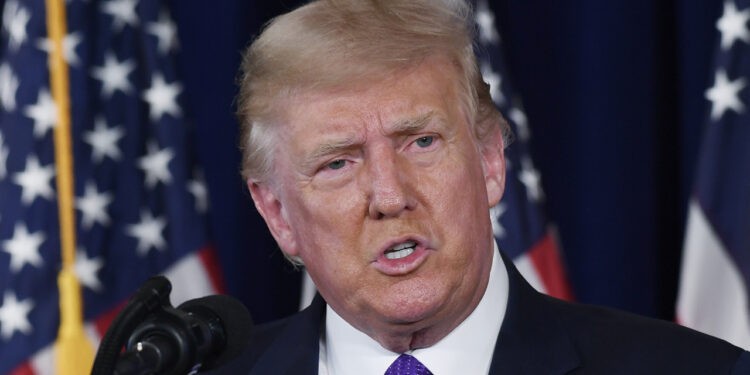Abuja, Nigeria – November 1, 2025 In a fiery declaration that has sent shockwaves through diplomatic corridors and ignited fierce debate across Nigeria, U.S. President Donald Trump has redesignated Africa’s most populous nation as a “Country of Particular Concern” (CPC), accusing the government of turning a blind eye to what he calls an “existential threat” to Christianity. Citing the slaughter of thousands of believers by radical Islamist groups, Trump’s move—announced via his Truth Social platform on October 31—revives a controversial label from his first term and opens the floodgates for potential U.S. sanctions, aid cuts, and strained bilateral ties. “Christianity is facing an existential threat in Nigeria. Thousands of Christians are being killed. Radical Islamists are responsible for this mass slaughter. I am hereby making Nigeria a ‘COUNTRY OF PARTICULAR CONCERN’—But that is the least of it,” Trump proclaimed, directing U.S. House Representatives Riley Moore (R-WV) and Appropriations Committee Chairman Tom Cole (R-OK) to launch an immediate probe into the violence. The President vowed that America “cannot stand by” as atrocities unfold, positioning the U.S. as a global guardian of Christian communities.
A Bloody Toll: 7,000 Lives Lost in 2025 Alone
The CPC tag, enshrined in the 1998 International Religious Freedom Act (IRFA), spotlights nations where governments systematically violate religious freedoms. Nigeria now rubs shoulders with notorious offenders like North Korea, China, Iran, and Saudi Arabia on the list. Advocates point to harrowing statistics: According to Open Doors World Watch List and Rep. Moore’s October 6 letter to Secretary of State Marco Rubio, over 7,000 Christians—averaging 35 per day—were killed in Nigeria in the first seven months of 2025 alone. Since 2009, estimates suggest 50,000 to 100,000 believers have perished, with 19,100 churches razed or attacked. Perpetrators? Primarily Boko Haram, Islamic State West Africa Province (ISWAP), and Fulani militant herders, who target Christian farmers in the volatile Middle Belt, blending land grabs with faith-fueled raids. “Nigeria has become the deadliest place in the world to be a Christian,” Moore declared, slamming the government for “complicity” through inaction and blasphemy laws that disproportionately ensnare Christians. Sen. Ted Cruz (R-TX) echoed the call in September, introducing the Nigeria Religious Freedom Accountability Act (S.2747) to mandate sanctions on officials enabling jihadist attacks. Trump’s ambassador-designate for International Religious Freedom, Mark Walker, urged: “The United States must do what it can to pressure Nigeria’s government to act.”
Key Atrocities in Nigeria (2025 Data) Details Impact
Christian Deaths 7,000+ (Jan-Aug) 70% of global faith-based killings
Churches Destroyed/Attacked 19,100 since 2009 Widespread displacement of communities
Kidnappings & Rapes Hundreds reported Targeting clergy & families
Perpetrators Boko Haram, ISWAP, Fulani herders Linked to 22 ISIS-affiliated terror groups
Sources: Open Doors, International Christian Concern, Rep. Moore’s Letter
Nigeria Pushes Back: ‘No Genocide, Just Indiscriminate Terror’
The Nigerian government, under President Bola Tinubu, wasted no time in rebuttal. Information Minister Mohammed Idris insisted the violence is “indiscriminate,” striking Muslims, Christians, and others alike in the fight against extremism. “These criminals target all who reject their murderous ideology, regardless of faith,” Idris stated, highlighting security gains: Over 13,500 terrorists neutralized and 10,000 hostages freed since May 2023, including the capture of top Ansaru leaders and 700+ Boko Haram convictions. Senior Adviser Massad Boulos, during an October 17 visit to Abuja, dismissed “genocide” claims as “misinformation,” while the Senate formed a 12-member ad-hoc committee on October 14 to probe international concerns. Premium Times Nigeria labeled the narrative “false,” arguing insecurity stems from farmer-herder clashes, not targeted religious persecution. Yet, critics like the Christian Association of Nigeria (CAN) decry persistent northern attacks on worship sites, urging action beyond denials.
Stakes for Stakeholders: From Oil Deals to Diaspora Dreams
For Nigeria’s stakeholders—business tycoons, policymakers, and the 10-million-strong U.S. Nigerian diaspora—the CPC could sting economically. Analysts warn of halted arms sales, restricted foreign aid, and chilled investments in Africa’s oil powerhouse. The Washington Post notes it “opens the door for sanctions,” potentially disrupting NNPC deals and Dangote Refinery ambitions. Reputational hits may deter FDI, already strained by recent U.S. visa curbs. Yet, the redesignation—first imposed in 2020 and lifted under Biden—carries symbolic weight. International Christian Concern hails it as a “critical first step” to amplify awareness and prod Abuja toward accountability. As Trump eyes a multipolar Africa, with Nigeria’s BRICS flirtations and UNGA Palestine stance irking Washington, this could be hybrid diplomacy: Pressure without full confrontation. Bishop Matthew Kukah recently implored the U.S. against the label, fearing it stigmatizes a diverse nation. But with 52,000 Christian deaths since 2009 (per advocacy letters to Trump), the human cost demands scrutiny. Will Nigeria’s government pivot to protect its minorities, or will denials deepen the divide? As Diwali lights flicker across the diaspora this November 1, one thing is clear: In the global arena, faith, power, and peril collide. Stakeholders Magazine will track the fallout—stay tuned.





